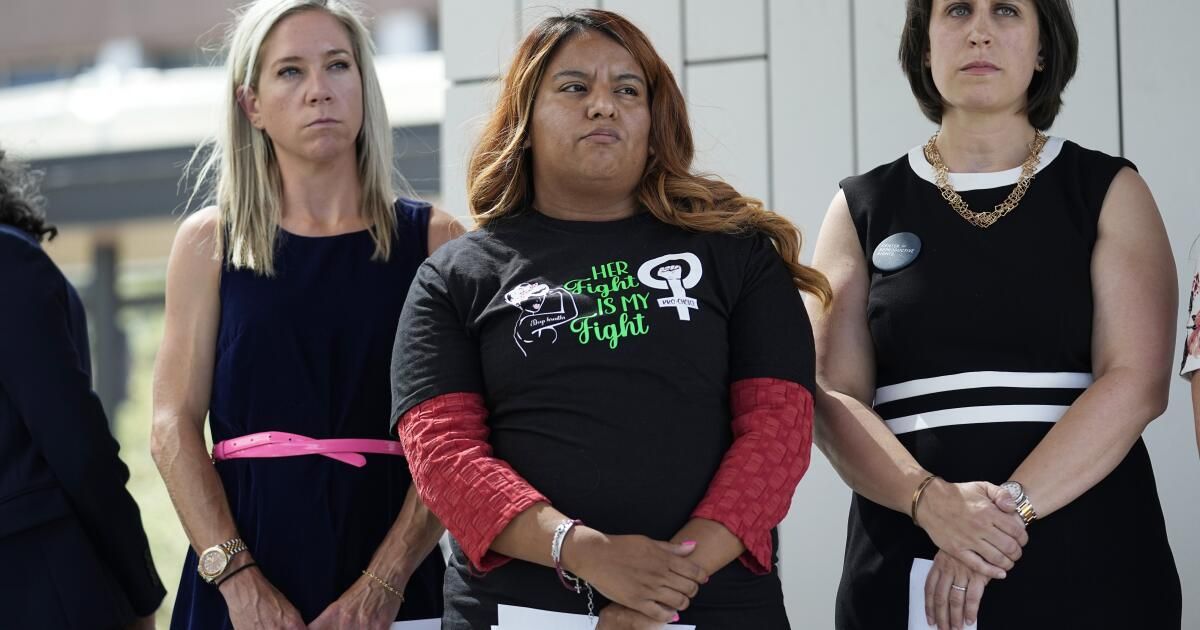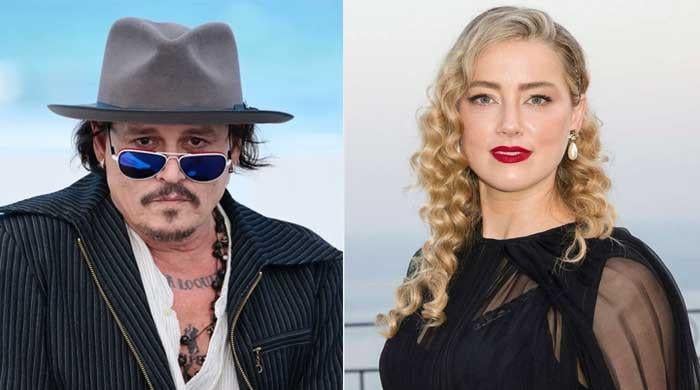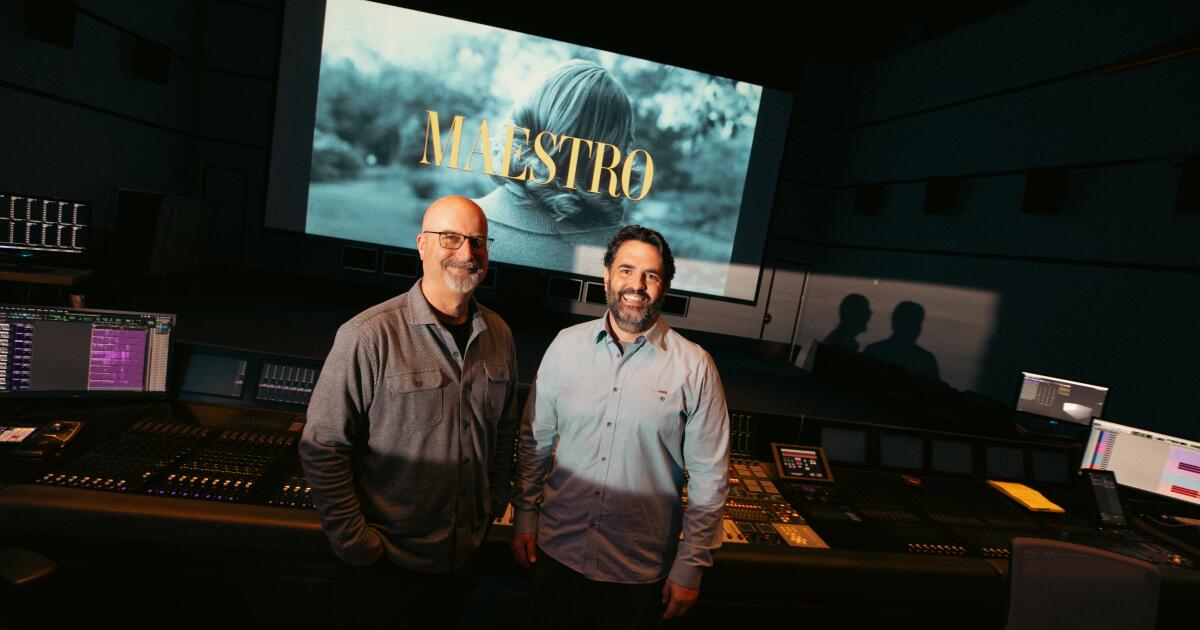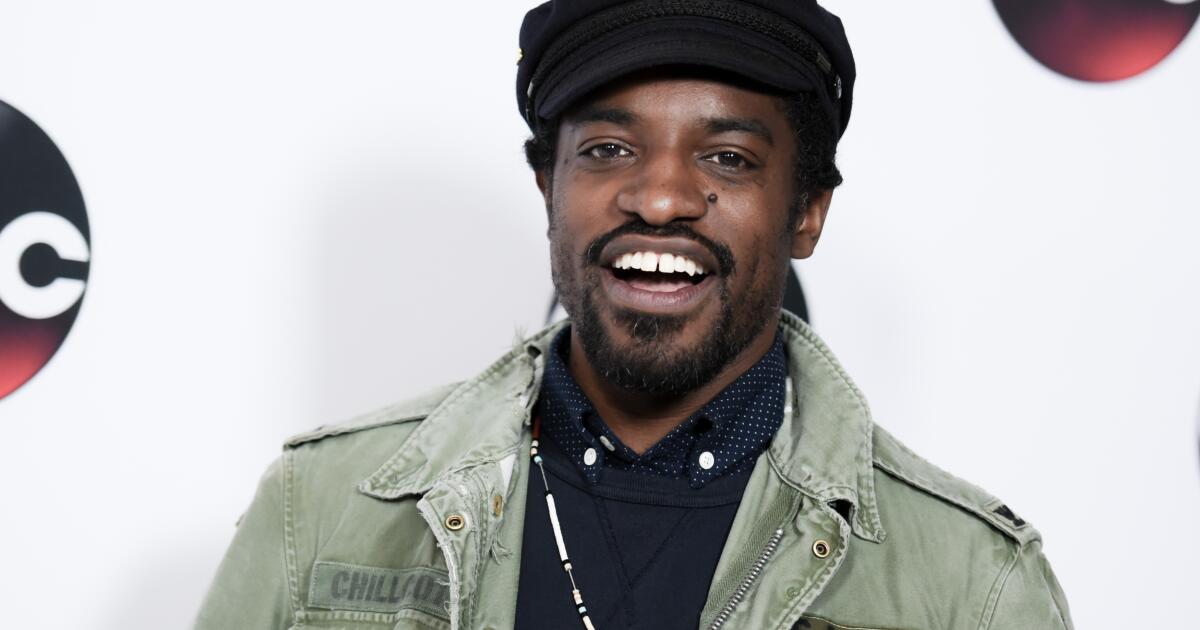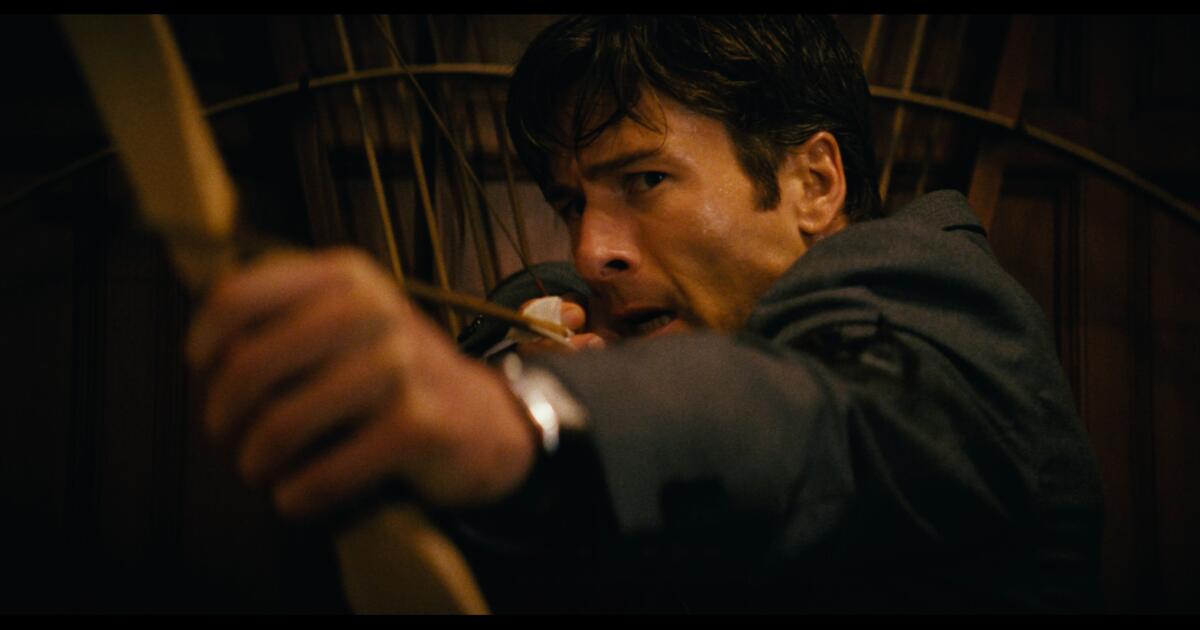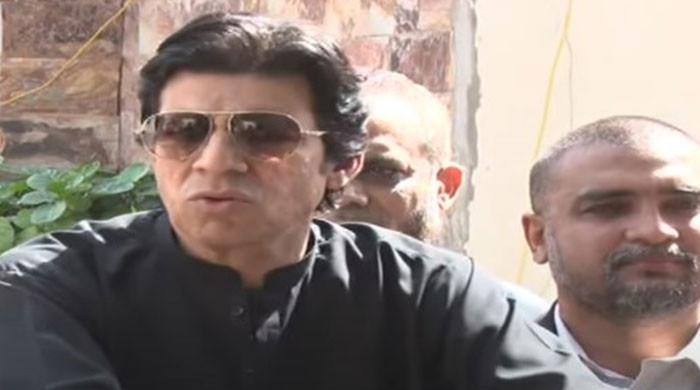After crippling strikes in Hollywood dimmed the star power at last year’s Telluride Film Festival, celebrities were back in attendance. But this year, it wasn’t just the likes of Angelina Jolie, Will Ferrell, Saoirse Ronan and Bill Murray who turned heads in the picturesque mountain town. Political figures like Hillary Clinton, James Carville, Mary Matalin and special prosecutor Jack Smith were also on hand, adding a level of gravitas to the festival’s cinematic celebration.
Against a backdrop of headlines dominated by global conflict and with the country approaching a presidential election that both parties view as existential, Telluride seemed less a refuge than a microcosm of the world’s anxieties. Hot-button issues — from the Israeli-Palestinian conflict to climate change and reproductive rights — took center stage in documentary and narrative features, infusing the usual cinematic chatter with the urgency of political discourse.
Former Secretary of State Clinton and her daughter Chelsea were on hand as producers of the documentary “Zurawski v Texas,” which focuses on a recent lawsuit over abortion access in the Lone Star State. In a post-screening Q&A on Saturday alongside three of the plaintiffs who share their own deeply personal stories in the film — Amanda Zurawski, Samantha Casiano and Austin Dennard — Hillary Clinton expressed hope that the documentary, which is currently seeking distribution, will bring renewed focus to the battle to ensure access to reproductive care following the Supreme Court’s overturn of Roe v. Wade.
“I don’t think we can overstate the importance of this film in breaking through the attitude of disdain, denial, disdain and cruelty that has affected the lives and futures of so many women in our country today,” Clinton told a packed audience, who responded to the emotionally wrenching film with applause and tears. “Of course, we have a lot of stories about abortion and reproductive health, but after Roe was overturned … this is really a film that breaks through the denial and the indifference. And it’s only because the women on this stage were willing to tell their stories.”
Chelsea Clinton explained that she and her mother had created their own production company, Hidden Light, “to help people tell stories that we feel urgently need to be told and yet are too often left in the shadows because the topics are often quite uncomfortable for people. And we think we are in a moment where we really need to be uncomfortable.”
The global warming documentary “The White House Effect” also proved a box office hit, with its Saturday morning screening drawing such a large crowd that dozens of people had to leave the venue. Made up entirely of archival footage culled from some 14,000 sources, the film, directed by Bonni Cohen, Jon Shenk and Pedro Kos, focuses heavily on the pivotal presidency of George H.W. Bush, who came to power promising to be the “environmental president” but then backed away from any serious commitment to addressing the threat of climate change as the issue became muddied by divisive politics and deliberate misinformation.
On a slightly lighter note, famed Democratic strategist Carville brought his inimitable Cajun eccentric wit and astute political analysis to the festival as the subject of Matthew Tyrnauer’s documentary “James Carville: Winning Is Everything, Stupid!” During a post-screening Q&A Sunday night, Tyrnauer explained that he had finished the film, which was picked up by CNN Films, just before the Trump-Biden debate, only to have to re-edit it as the campaign quickly took a dizzying turn.
Jeremy Strong, left, and Sebastian Stan in the film “The Apprentice.”
(Cannes Film Festival)
Carville, whose seemingly unlikely marriage to former Republican operative Matalin forms the emotional backbone of the film, said he hoped the documentary would inspire a younger generation to enter the political arena. “The country is never going to be better than the people who are in politics, and if we just keep telling them it’s a dirty business or they’re all crooks, they’ll listen to us and stay out of politics and the country will go to hell,” he told the crowd. “That’s my real passion with regard to this. This is an honorable business.”
The repercussions of the Israel-Palestine conflict also resonated at the festival. Tim Fehlbaum’s gripping narrative feature “September 5” chronicles the kidnapping and massacre of Israeli athletes by Palestinian militants during the 1972 Munich Olympics, as seen by the ABC Sports crew who struggled to cover the horrific event in real time. The documentary “No Other Land” explored the occupation of the West Bank through the unlikely bond between a young Palestinian activist and an Israeli journalist.
Among other politically charged documentaries, Brazilian director Petra Costa followed up her Oscar-nominated “The Edge of Democracy” with “Apocalypse in the Tropics,” about the rise of Jair Bolsonaro, while Errol Morris tackled the Trump administration’s controversial family separation border policy with his new film, “Separated.”
“Our information revolution is causing a lot of fanaticism and it is urgent to create mechanisms that prevent this tribalism from intensifying to the point of killing each other and the planet,” Costa said in a question-and-answer session after the screening. “I think we are in a moment of such intense crisis that this will be possible.”
But the film that generated the biggest political stir in Telluride was one that was kept under wraps until the festival had already begun: the controversial Trump biopic “The Apprentice.” Introducing the film to a packed audience Saturday night alongside stars Sebastian Stan, who plays Trump, and Jeremy Strong, who plays his ruthless mentor Roy Cohn, director Ali Abbasi said that, contrary to fierce pushback from the Trump camp after its premiere at the Cannes Film Festival in May, the darkly comic film was not intended to take down Trump.
“It’s not a politically offensive film,” said Abbasi (“Sacred Spider”), who was born in Iran, of the movie, which opens in theaters Oct. 11, less than a month before the election. “It’s not about criticizing anyone or promoting anyone. It’s a mirror, and its purpose is to show you, as mirrors do, an image of yourselves as a community.”
Indeed, Abbasi joked that Trump, whose team has called the film defamatory and threatened legal action to try to stop its release, was more than welcome to attend the screening. “We had reserved three seats there for him and his bodyguards, and we are still waiting,” he said. “He may come in the dark, you never know.”
Among the other Washington personalities at the festival, one kept a particularly low profile. Special counsel Smith took a brief break from his ongoing prosecutions of Trump to support his wife, documentary filmmaker Katy Chevigny, whose first narrative feature, “The Easy Kind,” about a Nashville singer-songwriter, screened as part of the festival’s Backlot program. Smith was seen filming a handful of movies, including the Pharrell Williams documentary “Piece by Piece,” but otherwise stayed out of the spotlight.
Amid the various ongoing political storms, Smith’s silent presence served as a subtle reminder that no matter how high the stakes, some things (like being there for your spouse) transcend even the most flashy conflicts.

